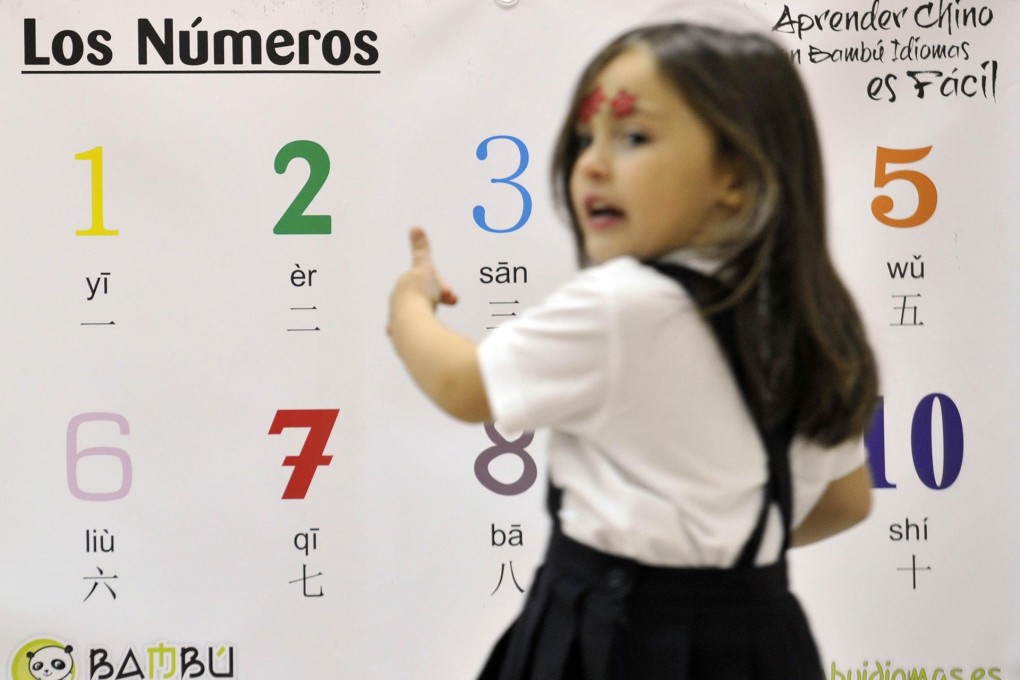Spaniards going bananas over learning Chinese
Students as young as three are learning the language as are many job-seeking adults

"Xiang jiao! Banana!" says Fu Huijuan, beaming as she waves the fruit in front of her three-year-old pupil, Leon, at a Madrid nursery school.
He and his four classmates have barely learned to speak their native Spanish, but already they are absorbing Putonghua - as are many adult Spaniards concerned about their job prospects.
"Xiang jiao," Leon replies in a tiny voice, grinning as he is rewarded with a bite of banana and a sticker. "Xie xie. Thank you."
Fu's class - offered free for the first month - is the newest after-hours activity for children at the TEO private nursery, whose parents hope it will pay off later in life.
Numerous schools and language centres here have started holding such lessons as Spaniards look to China's fast-growing economy for opportunities after five years of on-off recession in Spain.
"Chinese seems to me an essential language in today's world and the best way to learn it is from an early age. Learning it as an adult seems much more difficult," says Leon's mother, Sara Vergara.